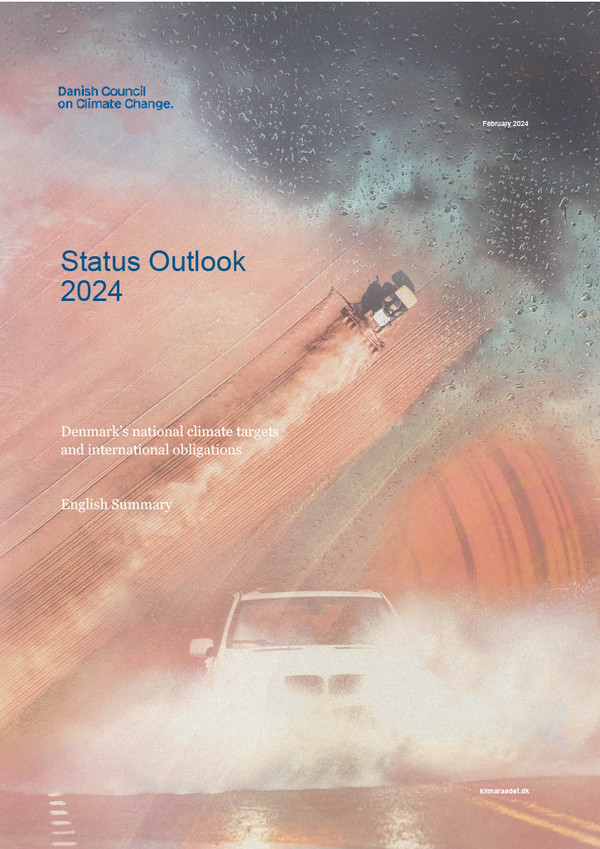
Status Outlook 2023


Abstract
The newly elected Danish government faces the major task of fulfilling the objectives of the Danish Climate Act and ensuring that Denmark can be a climate frontrunner that can inspire the rest of the world. In its annual status report, the Danish Council on Climate Change (DCCC) takes stock of Danish climate policy, assessing whether current policy efforts demonstrate that Denmark will meet its national climate targets and its EU obligations, e.g. the obligations under the newly agreed burden sharing agreement and the Regulation on the land use, land use change and forestry (LULUCF) sector. Finally, the report includes recommendations for policies and measures that the government should prioritise in the coming year.
Denmark’s current national climate targets include a target of a 50-54 percent reduction in greenhouse gas emissions by 2025 compared to 1990, a reduction of 70 percent by 2030 and climate neutrality no later than 2050.
The DCCC commends the government for outlining a strategy for how to meet the 70 percent target, but, overall, the Council assesses that the government has not yet demonstrated that the targets are likely to be met. This is mainly due to a significant risk that several of the elements in the government's strategy will not deliver the expected reductions in greenhouse gas emissions. The Council also finds that even if national targets are met, this will not necessarily mean that Denmark also fulfils its new EU obligations. Most likely, Denmark needs to do more in the transport, agricultural and household sectors to also meet these obligations. Finally, the DCCC recommends that the coming year’s climate policy should focus on implementation of already agreed policies and measures and on addressing emissions from the agricultural sector.
This Policy Brief provides a short English summary of the main findings, conclusions and recommendations of the DCCC’s annual status report.



